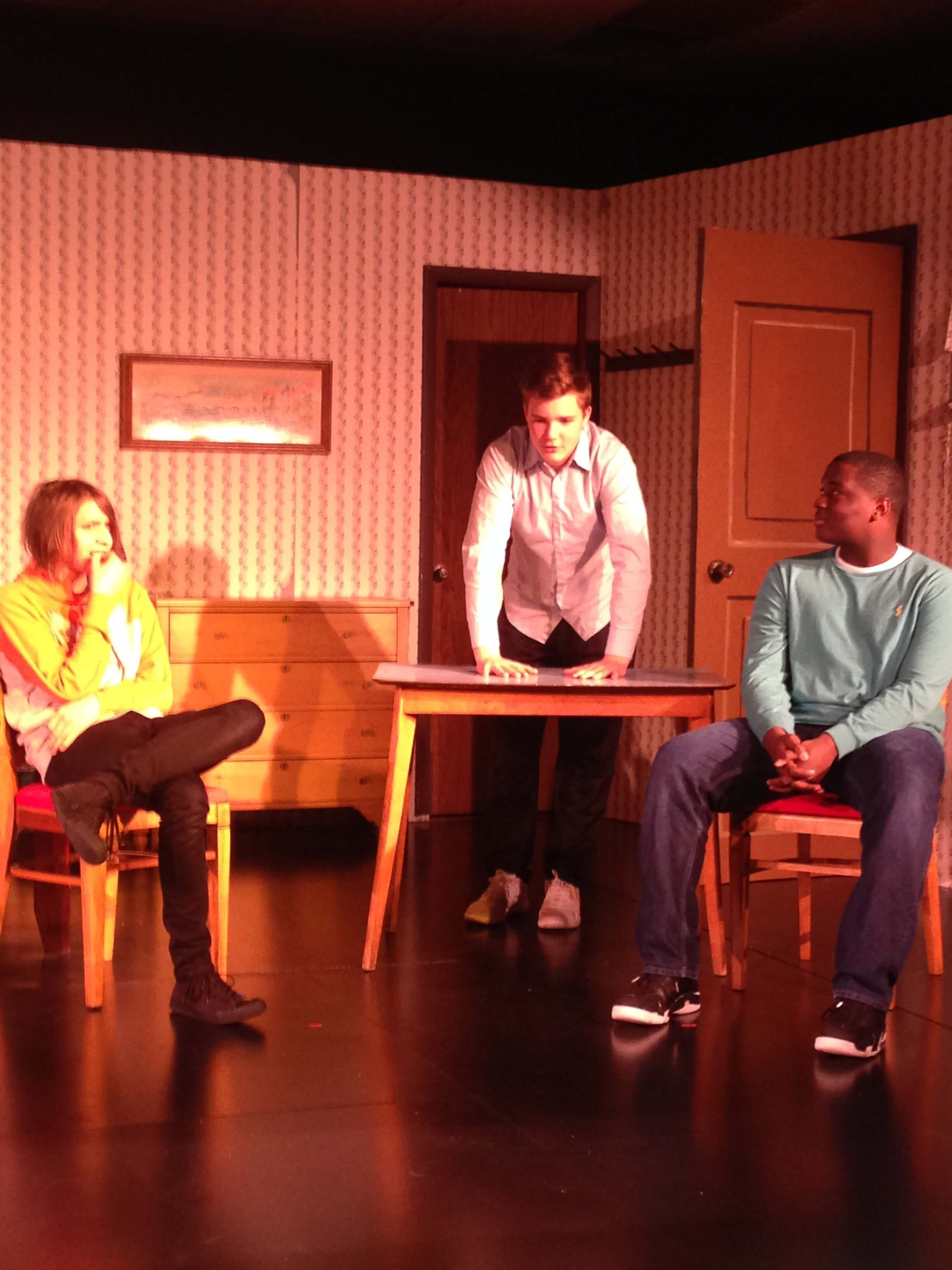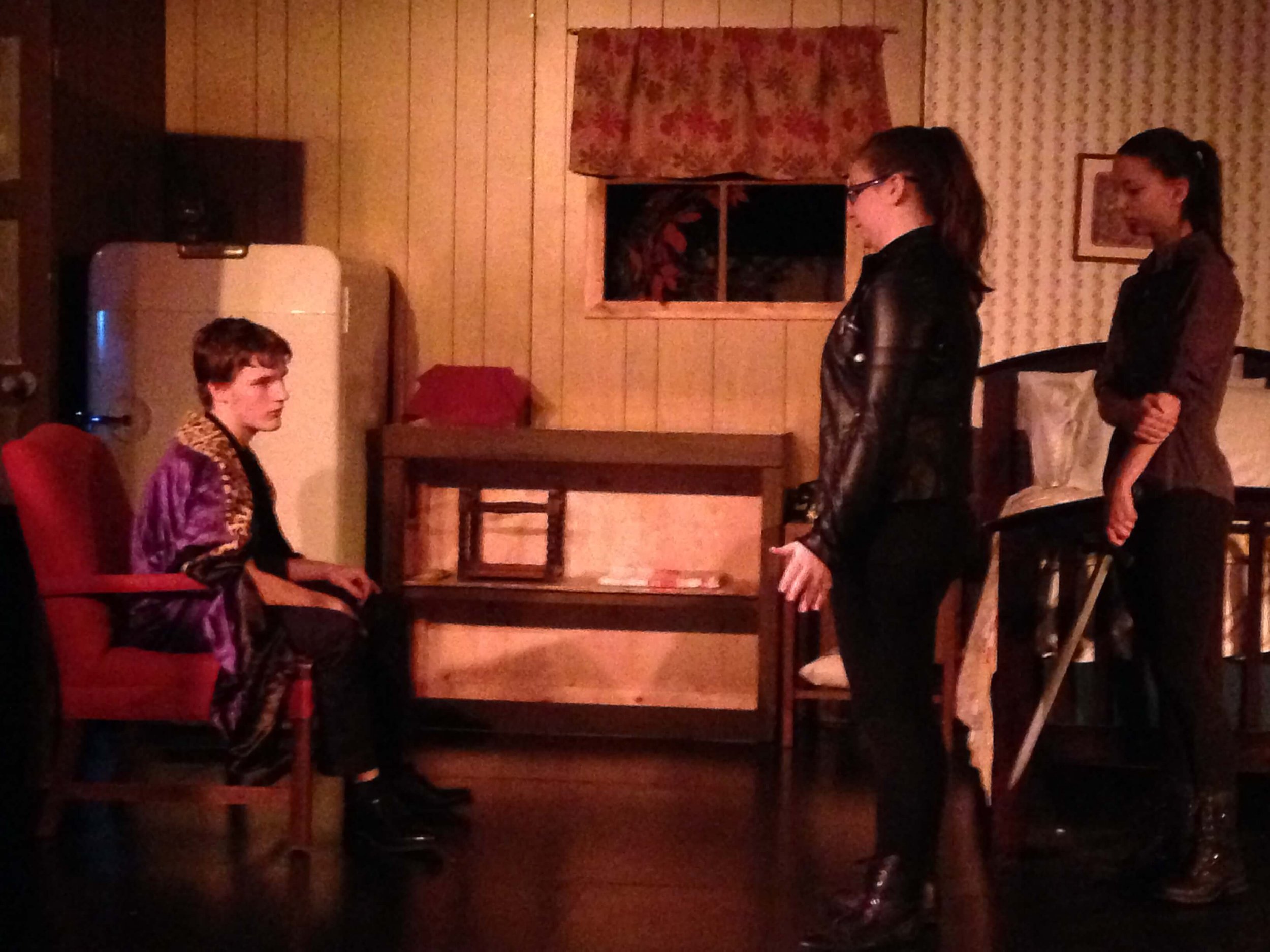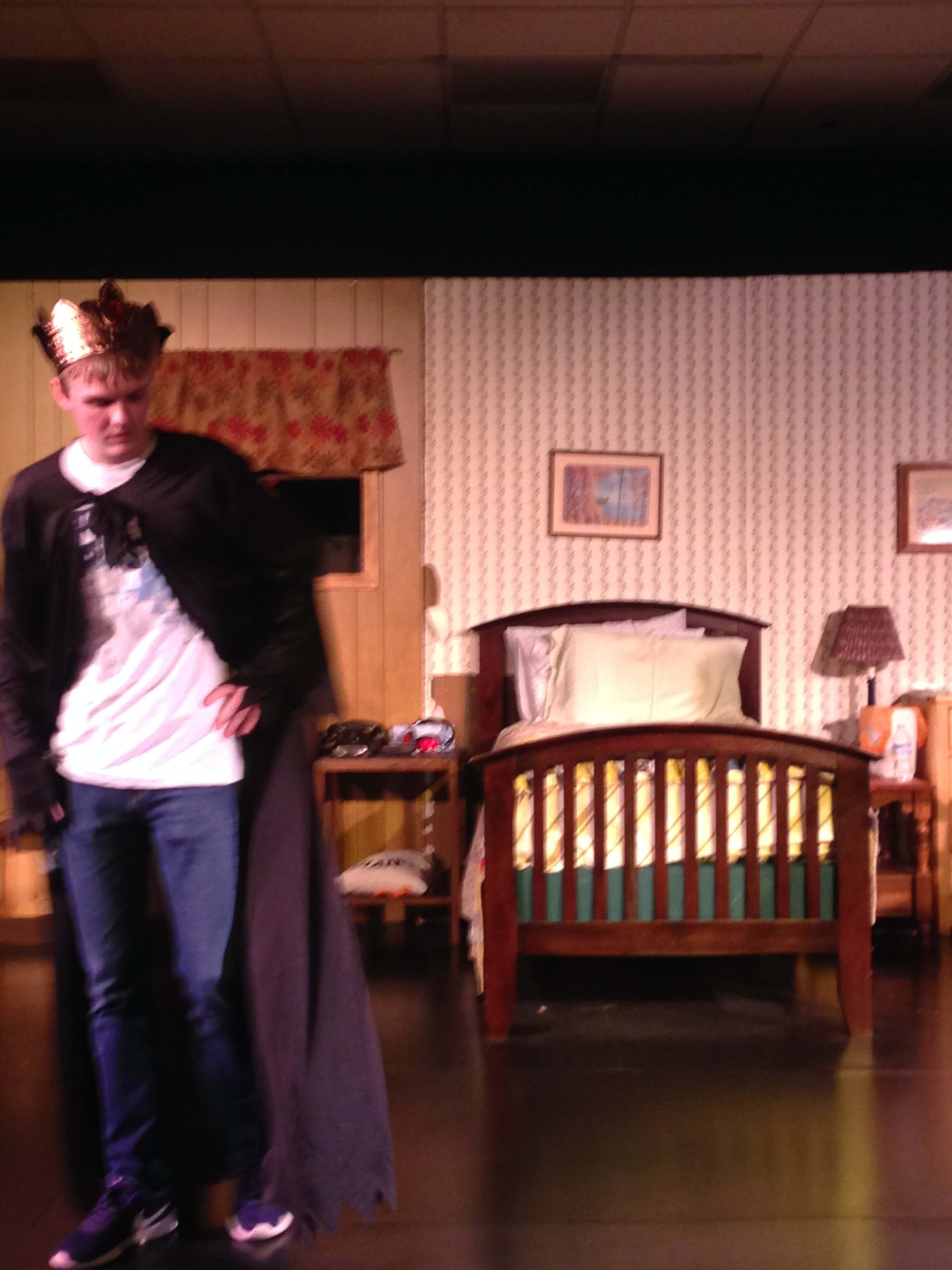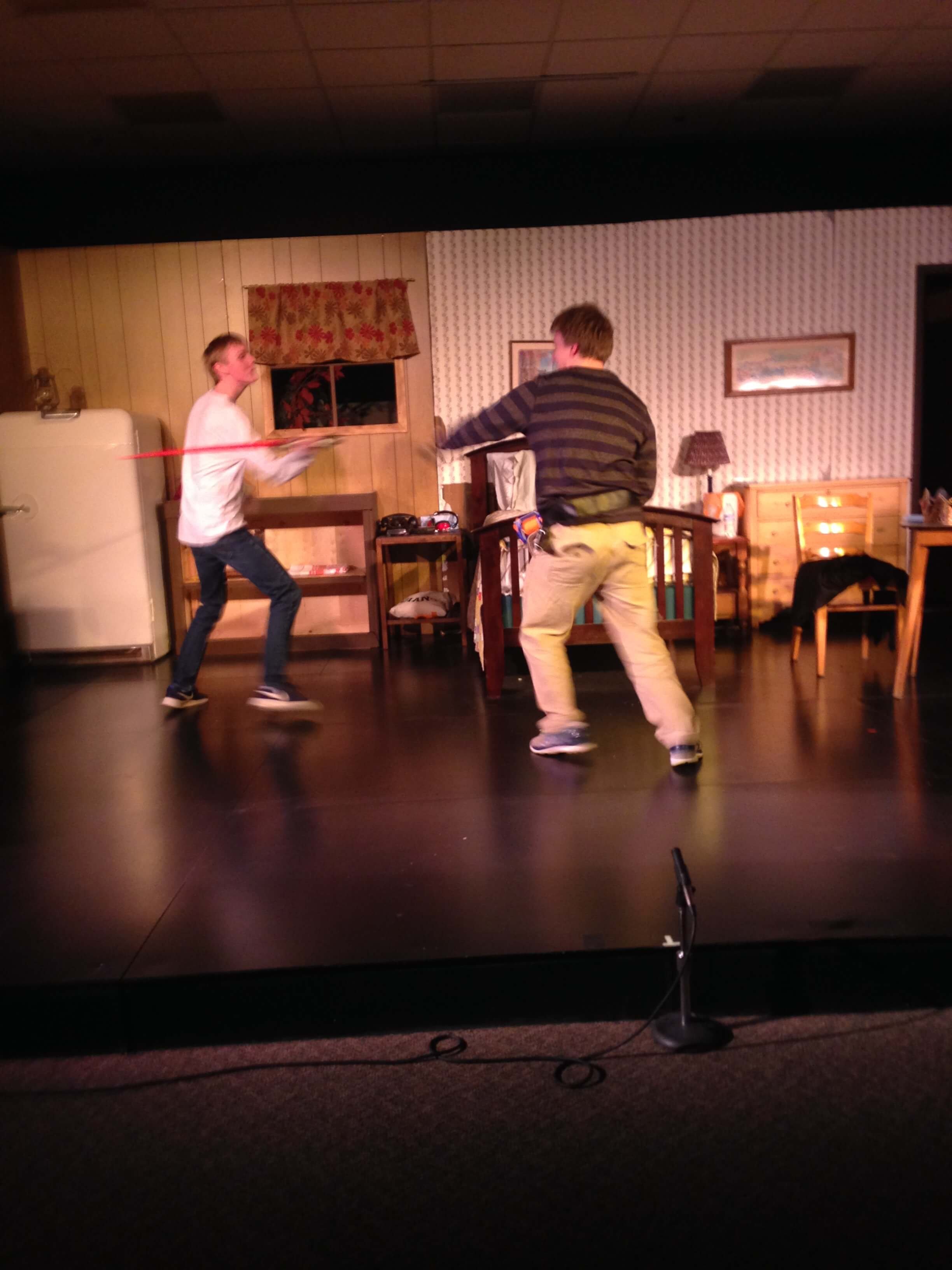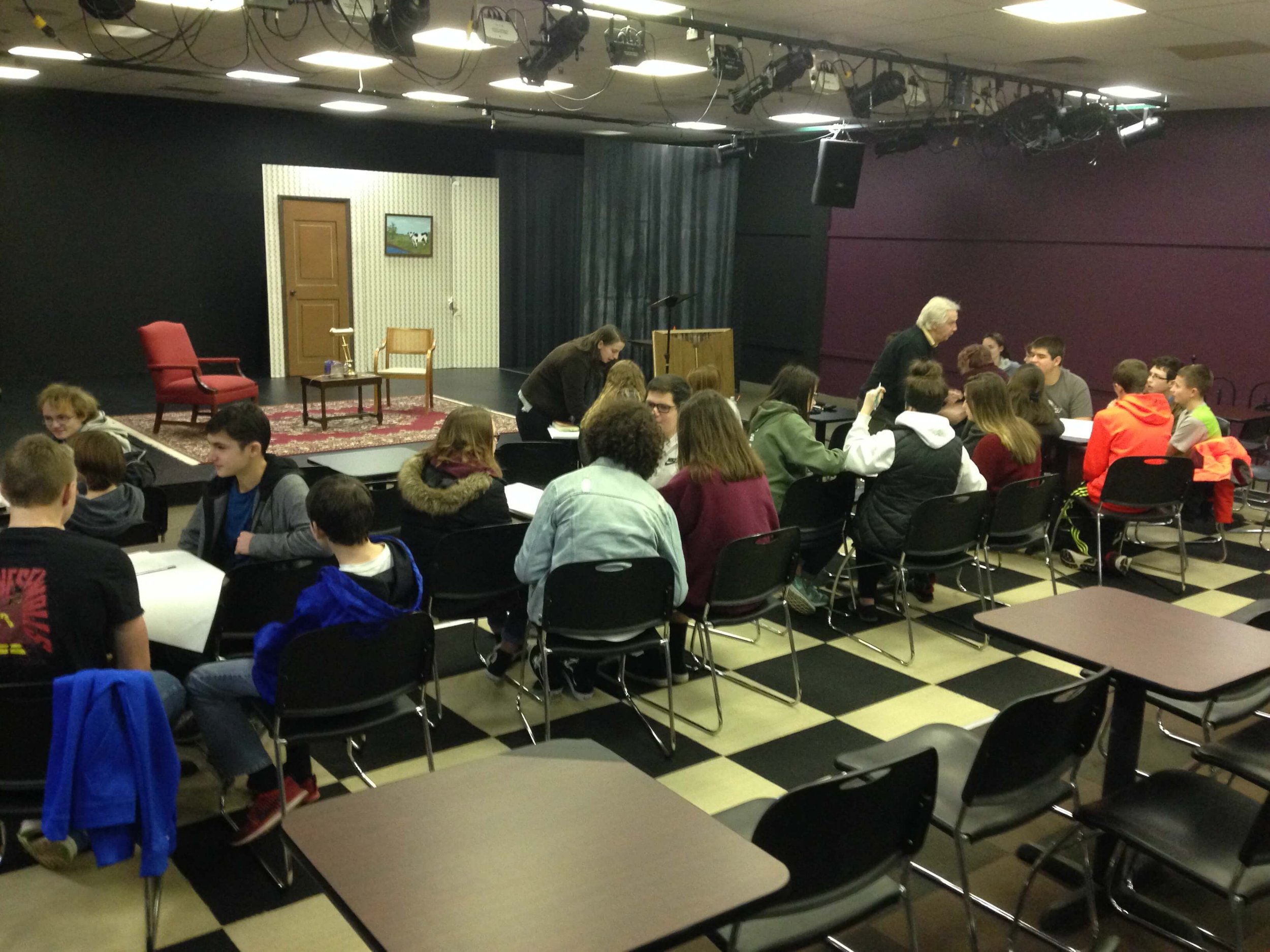Back to the PBL Playbook
Project Name: Dystopian Masterpiece Theater
Facilitator Name: Andrew Larson
Grade: 9th
Subject(s): English 9/ Environmental Studies
Course Name: Global Science Perspectives
PBL Unit Description & Content Topics Addressed: In this project, students study the elements and themes of dystopian literature and apply that knowledge to the creation of their own short play. In partnership with a local theater and playwright, students review the creation of a story plot from exposition to resolution and then turn that story into a play scripts with dialogue and stage directions. In the end, students perform their plays at the theater, first as an exhibition, where the best six plays are selected for a special evening performance.
A: Learning Goals: Content Knowledge & Skills Addressed (Standards)
Content Standards:
Elements of plot
Themes and elements of dystopian literature
Skills Addressed:
Writing dialogue
Memorization and delivery of lines
B. Driving Question: How can we as playwrights use the themes of dystopian literature to inform our awareness of modern society's strengths and weaknesses, and how can we best represent those themes in a performance setting?
C. Entry Event: Our entry event takes place at The Harlequin Theater (conveniently located right across the street.) There, students are provided with a "playbill" style entry document and meet Robert Hay Smith, our community partner and director. He provides them with a brief introduction to the project, theater in general, and gives some basic advice on getting started with a story. Students jump in to idea generation and complete know/ need to know items as homework, which we review the next day, along with the creation of a class problem statement.
D. Benchmarks & Scaffolding: Dystopian Masterpiece Theater Benchmarks & Scaffolding
E. End Products: End products include a finished script and a final performance.
F. Rubric: Storyboard & Plot Rubric
G. Community Partnerships: Robert Hay Smith, owner of and director at The Harlequin Theater, provides weekly workshops for students at his theater and hosts the final evening performances. He is delightful, engaging, funny, and great with kids.
Authenticity & Relevance (Real-World Connections, Applied Learning, Active Exploration): Students attend weekly workshops with our local theater where they are coached on everything from story development, creation of dialogue, stage presence and delivery, and special effects. They are constantly connecting the dystopian themes to those of our modern world and analyzing the modern societal norms that we have adopted as a country.
Inquiry: Students have total liberty in the creation of their story. We advise them on attending to the elements of plot so that their plays have true conflict, resolution, and often a “strange twist,” but otherwise, the ownership is all on them.
Student Voice & Choice: In addition to near complete liberty with their stories, students also select books from a list that is differentiated by both reading level and interest. The list includes but is not limited to:
Anthem by Ayn Rand
1984 by George Orwell
The Circle by Dave Eggers
The Handmaid’s Tale by Margaret Atwood
The Uglies by Scott Westerfield
All books were also made available as audio files.
Employability (21st Century) Skills Addressed
Group Collaboration
Written Communication
Oral Communication: Oral Communication Rubric
Required Materials and/or Tools:
Books (dystopian literature)
Chart paper (for storyboarding)
Examples of Student Work



